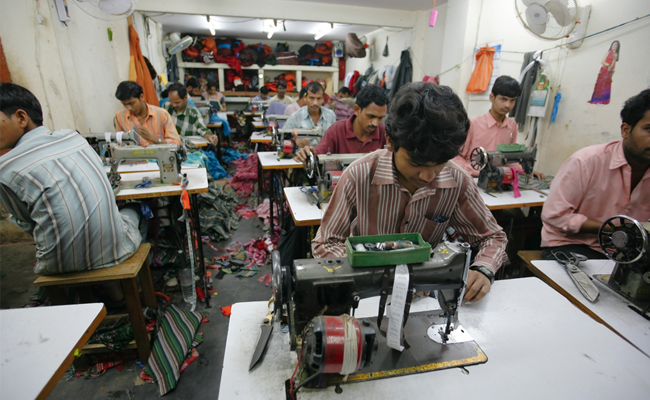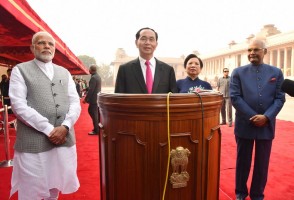
India slips down the Global Competitiveness rankings for the sixth consecutive year
The Dollar Business Bureau | @TheDollarBiz
 The World Bank estimates that it takes 12 procedures and almost a month to register a business in India. Taxes amount to 63% of a company's profits, and the labour market is inefficient and rigid, it says.
The World Bank estimates that it takes 12 procedures and almost a month to register a business in India. Taxes amount to 63% of a company's profits, and the labour market is inefficient and rigid, it says. India has slipped several notches down in the World Economic Forum’s (WEF) Global Competitiveness Index (GCI) 2014-15 to the 71st rank, down from the 60th rank India stood at in the GCI 2013-14 rankings. While Switzerland retains its top spot for the sixth consecutive year, Singapore continues to be at No.2. All other BRICS countries are above India in the rankings and several ASEAN nations have improved their rankings this year: Malaysia (20, up from 24 in 2012-13), Thailand (31, up from 37), Indonesia (34, up from 38), Philippines (52, up from 59), and Vietnam (68, up from 70). China is at No.28, up from No.29 in the previous year, widening the gap with India. “While, India’s GDP per capita was higher than China’s in 1991, today China is four times richer than India and the rank differential with China has grown from 14 places in 2007 to 43 in 2014,” WEF says.  This is the sixth consecutive year that India has dropped in the GCI rankings. The WEF says that the country’s new government faces the challenge of improving competitiveness and reviving the economy, which is growing at half the rate of around 10.3% seen in 2010. Infrastructure (87th) remains a major challenge for the new government.
This is the sixth consecutive year that India has dropped in the GCI rankings. The WEF says that the country’s new government faces the challenge of improving competitiveness and reviving the economy, which is growing at half the rate of around 10.3% seen in 2010. Infrastructure (87th) remains a major challenge for the new government.
 Source - WEF
Source - WEFWhile several negative factors such as procedures and corruption have reduced in India, the overall business environment and market efficiency remain plagued by protectionism, high inflation, a narrow tax base, low manufacturing base, and lack of technological readiness (121st). “Despite mobile telephony being almost ubiquitous, India is one of the world’s least digitally connected countries. Only 15% of Indians access the Internet on a regular basis,” says WEF. WEF is an independent international organization which highlights the importance of competitiveness in a country’s growth potential. This year’s report provides an overview of the competitiveness performance of 144 economies, and has used over 100 indicators including the 12 pillars: institutions, infrastructure, labour market efficiency, goods market efficiency, technological readiness, market size, business sophistication and innovation. The 144 countries are segregated into three stages and two transition stages based on the development stages. India is grouped with 36 countries in the Stage 1 or “Factor driven” economies group, while in the Stage 3 or “Innovation driven” economies are 37 countries including USA, China and Japan. In transition are 71 countries. A benchmark used by WEF to denote a country’s development is the extent of extraction of resources which is measured by the share of exports of mineral goods in total exports (goods and services). The report assumes that countries with more than 70% of their exports made up of mineral products are to a large extent factor driven.
This article was published on September 10, 2014.






 to success.
to success.